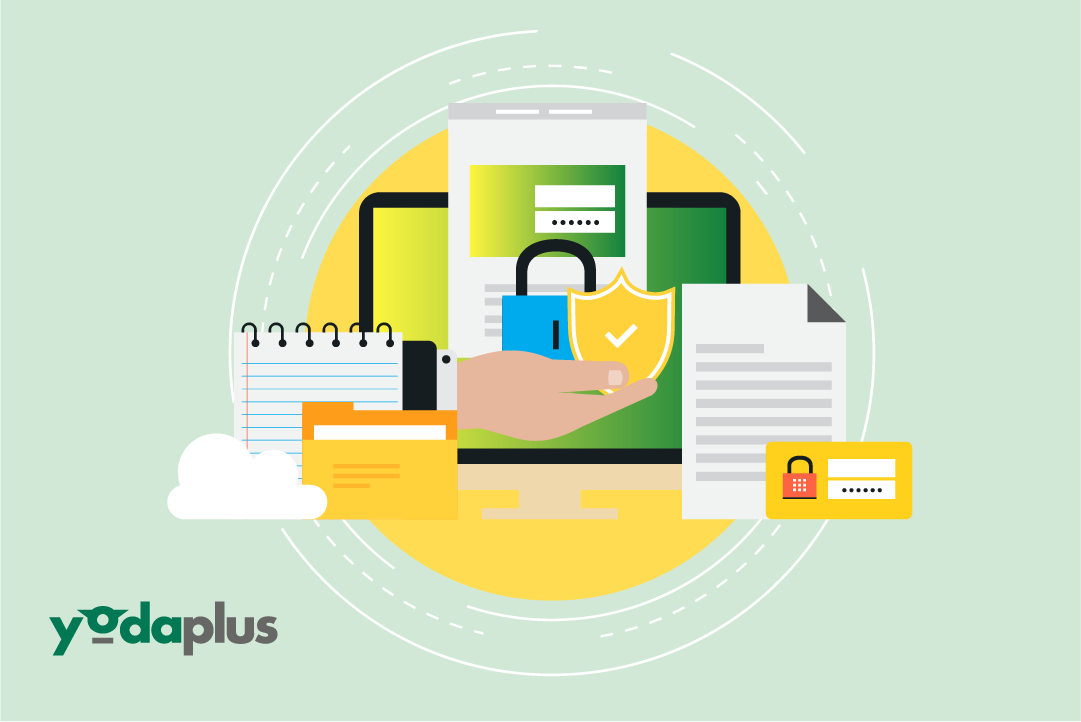
Document Digitization: How Blockchain is Improving Trust in Digital Records
March 18, 2025 By Yodaplus
Introduction
Organizations increasingly depend on electronic document management systems (DMS) to streamline workflows and reduce reliance on traditional paper documents. Despite the shift towards digitization, trust remains a significant challenge. Digital records can be susceptible to fraud, tampering, and unauthorized access, posing risks to operational efficiency and regulatory compliance.
Blockchain technology offers a robust solution by enhancing transparency, security, and trust in digital document management. This article explores how blockchain-driven document digitization addresses these challenges, its key benefits, real-world use cases, and future potential.
What is Document Digitization?
Document digitization is the process of converting physical paper documents into electronic formats, enabling easy storage, retrieval, management, and sharing of information digitally. This transformation enhances accessibility, reduces physical storage requirements, improves operational efficiency, and ensures better compliance. By digitizing documents, organizations can minimize manual errors, reduce paperwork, and streamline business processes, making it a critical step toward achieving greater productivity and sustainability.
The Role of Blockchain in Document Digitization
Blockchain is a decentralized digital ledger technology renowned for its immutability and transparency (learn more about blockchain here). Integrating blockchain with document digitization provides several critical advantages:
- Immutability and Integrity: Documents stored on the blockchain cannot be altered without leaving a trace, thus ensuring authenticity and preventing forgery.
- Enhanced Security: Decentralized storage and cryptographic hashing provide robust protection against unauthorized access.
- Transparency and Traceability: Every transaction involving digital documents is permanently recorded, providing transparent and verifiable audit trails.
- Automation: Blockchain enables automated, secure, and enforceable agreements, significantly reducing manual intervention and operational errors.
How Blockchain Enhances Document Digitization Workflows
Implementing blockchain in digital document management typically involves:
1. Document Creation and Hashing
- Documents are digitized, and a unique cryptographic hash is created and recorded on the blockchain.
- Any change to the document changes the hash, instantly flagging alterations or tampering.
2. Decentralized Storage
- Digital documents are stored securely across multiple blockchain nodes, protecting data from a single point of failure or manipulation.
3. Automated Verification
- Smart contracts execute predefined actions based on specific conditions, automating document verification and authorization processes.
- Eliminates manual verification and significantly accelerates workflow processes.
4. Transparent Audit Trails
- All interactions with the document (viewing, editing, transferring) are recorded and time-stamped, creating a transparent and unchangeable audit history.
Blockchain Document Digitization in Action: Real-world Use Cases
1. Supply Chain and Trade Document Digitization
- Blockchain enables secure management of trade documents such as Bills of Lading, customs declarations, and invoices.
- Example: DocuTrade by Yodaplus, which digitizes and secures international trade documents, ensuring real-time verification, fraud prevention, and seamless compliance.
2. Asset Tokenization and Ownership Verification
- Blockchain securely manages and authenticates digital documents for assets like real estate titles, intellectual property rights, gold, and luxury goods.
- Ensures indisputable ownership and simplifies asset transfer.
3. Education and Credential Verification
- Academic institutions use blockchain to digitize and validate educational certifications, diplomas, and transcripts.
- Provides quick verification and reduces credential fraud.
4. Healthcare Records Management
- Blockchain securely stores and manages patient records, enhancing confidentiality, compliance, and access control.
Benefits of Blockchain-based Document Digitization
Blockchain significantly improves document digitization by:
- Reducing operational costs: Automates document processing and reduces manual intervention.
- Increasing process efficiency: Refines workflows and accelerates document verification.
- Enhancing security and compliance: Provides robust, secure digital records compliant with regulatory standards.
- Building trust and transparency: Offers transparent tracking and auditability for all stakeholders.
The Future: Blockchain and Document Digitization
As blockchain consulting services advance, the technology’s role in digitizing documents will continue to expand. Future developments include:
- Widespread adoption of smart contracts: Automating more complex agreements across various industries.
- Increased interoperability: Easy integration between multiple blockchain platforms and legacy systems.
- Enhanced security and scalability: Improved blockchain protocols to manage larger data volumes securely.
Conclusion
Document digitization with blockchain is transforming how organizations manage digital records, significantly enhancing trust, security, and operational efficiency. Blockchain’s ability to ensure data integrity, streamline processes, and enforce compliance positions it as a critical solution in the ongoing digital transformation.
Yodaplus specializes in blockchain solutions tailored to document digitization, offering businesses robust tools for secure, efficient, and transparent digital records management.
Interested in adopting blockchain-enhanced document digitization? Connect with us to learn more.